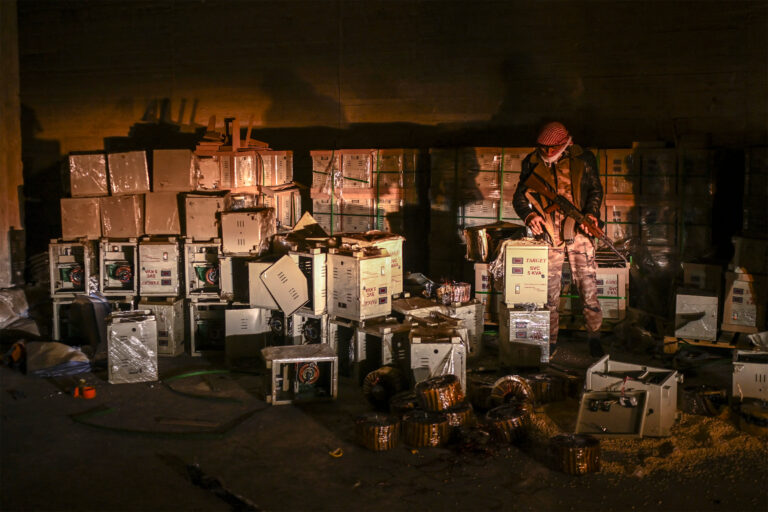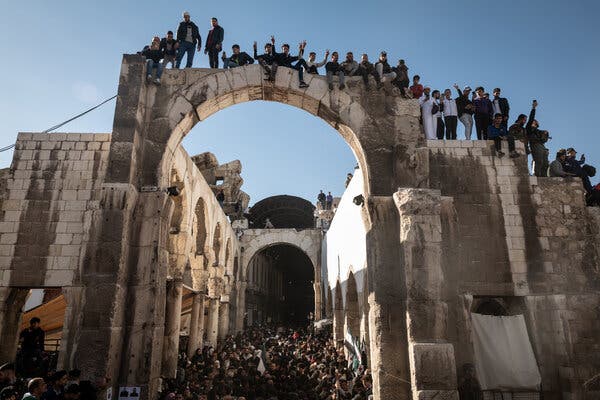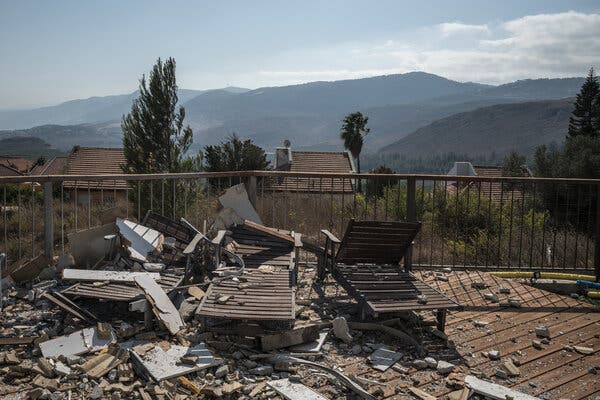Many residents of Dahiya were grappling with uncertainty over what comes next.

The funeral drew thousands into the streets of the Hezbollah-dominated neighborhood in Beirut’s southern suburbs on Sunday afternoon, where many mourners shook their fists and proudly waved the armed group’s yellow flag. They had gathered to commemorate Ibrahim Aqeel and Mahmoud Hamad, two Hezbollah commanders killed in an Israeli airstrike last week.
The procession capped a week defined by explosions and funerals in the neighborhood, Dahiya, a densely populated suburb south of central Beirut. Hearing a speech from one Hezbollah leader who vowed for retaliation, a sense of defiance coursed through the crowd. But many residents there were also grappling with uncertainty over what comes next — and the prospect of the conflict with Israel spiraling into an all-out war.
Dahiya’s streets, usually bustling on a weekend, were eerily empty. Shops were closed, their doors locked behind metal gates, and the few cafes open were mostly empty.
“I have been to 15 funerals this week,” said a 50-year-old woman as she stood outside another funeral early Sunday afternoon for two young men killed in the airstrike on Friday. “We’ve been waiting for this moment, we’ve been waiting for this war,” she added, declining to give her name for fear of reprisal.
Like many other residents in the neighborhood, her tone was defiant — an echo of the image of strength that Hezbollah has sought to project in the wake of the attacks by Israel this week.
In the early hours of Sunday morning, many residents were glued to their phones and televisions, waiting for news of additional Israeli airstrikes — and hoping to hear that Hezbollah had retaliated.



